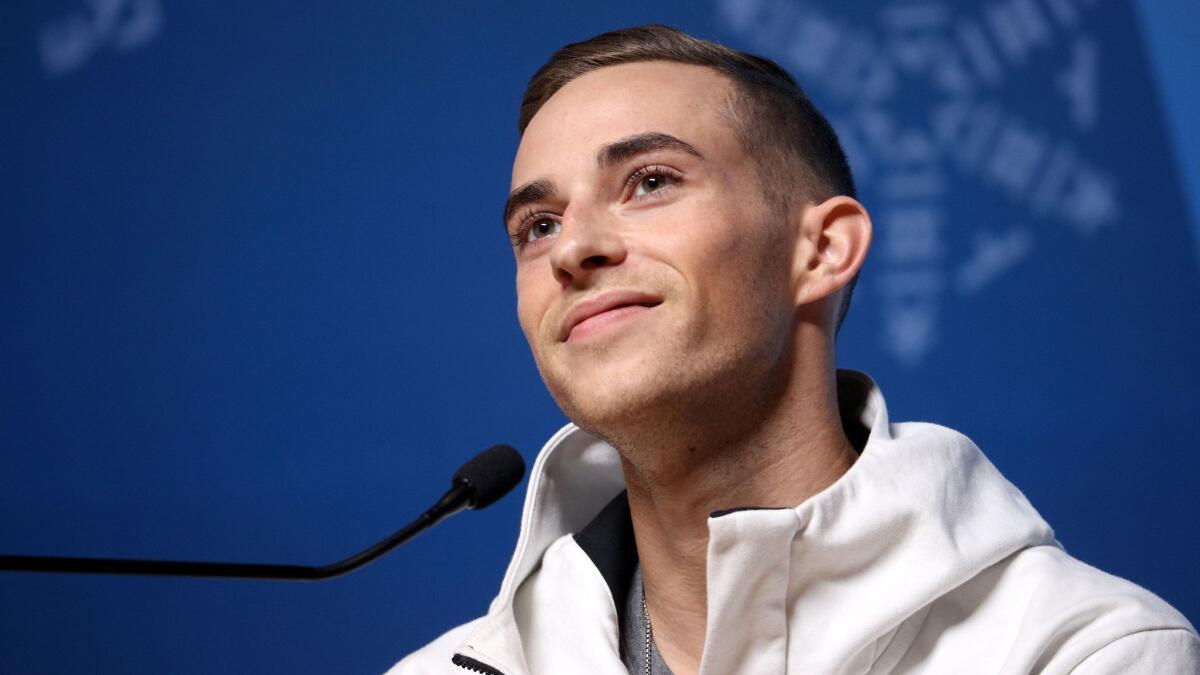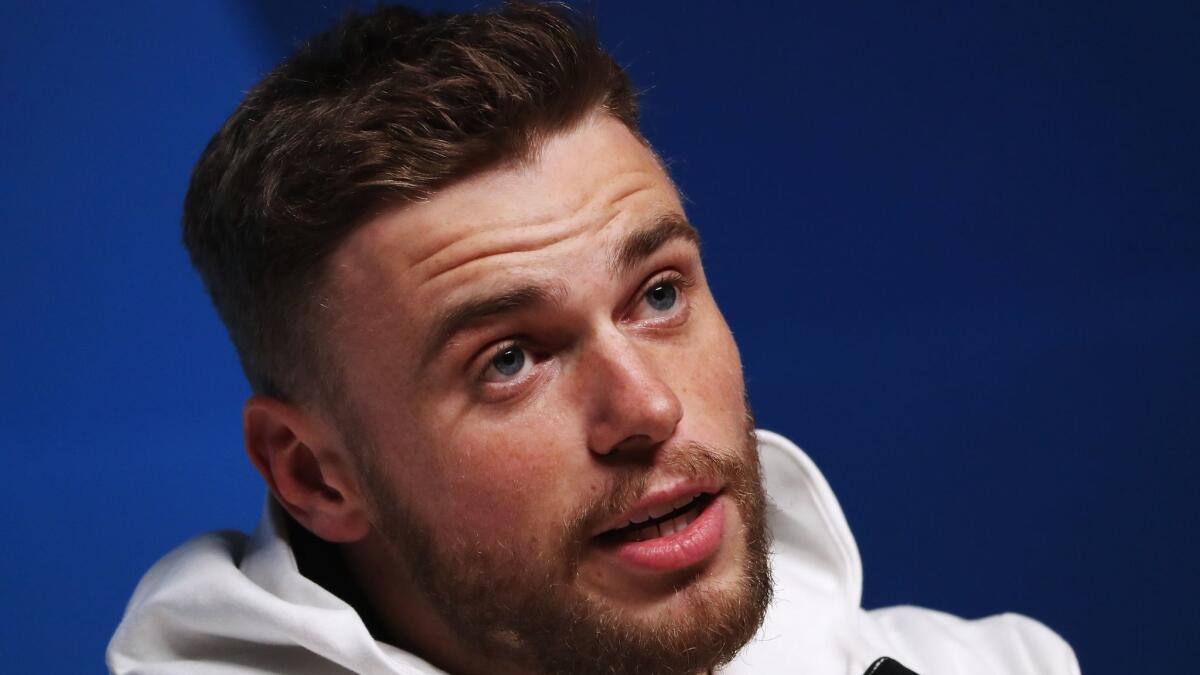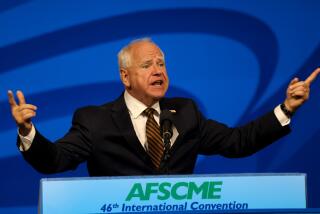Gay athletes use their platform at the Pyeongchang Olympic Games

The first openly gay male athlete at a Winter Olympics was British figure skater John Curry, in 1976.
He won gold in Innsbruck, Austria, and the following morning, unbeknownst to him, he was outed in a newspaper story from a pre-Games interview in which he privately discussed his sexuality — not for publication, he later insisted. It came at a time when homosexual acts between men were still illegal in some parts of the United Kingdom. The media didn’t know how to handle the story, some outlets refusing to use the word “gay.” The world, clearly, wasn’t ready for it.
But it is now.
Now you have slopestyle skier Gus Kenworthy and figure skater Adam Rippon posting a photo on social media of the former planting a kiss on the latter’s cheek while wearing Team USA sweaters at the opening ceremony, with the message:
We’re here. We’re queer. Get used to it.
Singer Rachel Platten, of the mega-hit “Fight Song,” was at the USA-Russia hockey game Saturday and was interviewed on the arena video board between periods. She was asked what other events she plans to attend in Pyeongchang.
“I’m going to see Gus tomorrow,” she said.
Gus, first name only.
Rippon’s eyebrows are trending on social media. Sesame Street’s Elmo shot a video with him. Actress Reese Witherspoon called him “reason No. 1” to watch the Winter Olympics.
These guys are the real rock stars in Pyeongchang.
These Olympics will be known, at least for 17 days, for thawing icy relations with North Korea; for improving transportation infrastructure in an underserved part of the country; for delivering a more financially responsible model for the Games without billions spent on white elephants; for returning them to a place where you actually need a parka and gloves in February.
But their real legacy, especially on the other side of the Pacific, might be the tectonic shift from tolerance to acceptance to, yes, reverence of the gay male athlete.
Or as Rippon said, half joking, after winning a bronze in the team competition and finishing 10th in men’s singles (and breaking Twitter): “One thing that I want people to come away with from this is I’m not a gay icon or America’s gay sweetheart. I’m just America’s sweetheart, and I’m just an icon.”
Sports often have been progressive agents of change, piercing the color barrier, championing gender equity, bridging the socio-economic divide. They have, to a certain extent, with acknowledgment of the lesbian athlete. They haven’t with the gay male athlete, the great taboo of the locker room.
“Sports,” LGBT website Outsports has said, “is still the final closet in society.”
Figure skater Brian Boitano won the gold while gay in 1988 but didn’t publicly confirm it for 25 years. Johnny Weir nearly came out during the 2010 Games in Vancouver, calling a news conference many thought was for that very purpose, but skated around questions and waited until the following year in his autobiography.
Kenworthy and Canadian pairs skater Eric Radford both acknowledge considering it four years ago in Sochi, then thought better of it given Russia’s draconian anti-gay laws.
Which brings us to 2018, a staggering 42 years post-Curry.
There are 15 openly gay athletes in Pyeongchang, two more than 2010 and 2014 combined.
In the Summer Games, with more than three times as many participants, the count of openly gay athletes has gone from 11 in Beijing to 23 in London to 56 in Rio two summers ago — and the number of men from one to four to 13.
Four years ago, Kenworthy was a silver medalist in an obscure event and best known for rescuing Sochi’s stray dogs. He came out in a cover story in ESPN The Magazine in 2015 and remembers his fingers trembling when he tweeted the link.
“I was literally afraid I was going to lose sponsors, lose a fan base, get dropped, stop getting invited to events,” Kenworthy said. “It’s just so crazy. It was such the opposite thing … I’m more marketable now as an out athlete.”

Kenworthy has sponsorship deals with Visa, Toyota, Ralph Lauren, Comcast’s Xfinity, and Proctor & Gamble. He recently filmed a shampoo commercial with a rainbow flag.
“Every brand is looking for diversity, more than ever,” Kenworthy said. “If I had been in my same position but seen as an out gay athlete who was getting big sponsors and having a successful career and doing well competitively, that would have given me so much hope and saved me so much heartache.
“All these brands want to tell my story, and my story isn’t just the story of an athlete. It’s not just the story of competing and doing well. It’s about battling the closet and other things I had to deal with as a kid. … I’m actually glad they’re focusing on that, because it is part of me and visibility is what really deteriorates homophobia, breaks down walls and barriers.”
Rippon was a washed-up skater without a quadruple jump who willed his way onto the 2018 team at age 28, the oldest U.S. Olympic rookie in that sport since 1936. Then he criticized the choice of Vice President Pence as ceremonial leader of the U.S. delegation considering Pence’s history of supporting gay conversion therapy and other legislation perceived as homophobic.
Pence played the “fake news” card. Rippon said he had “receipts” of Pence’s political leanings and tweeted out examples.
Rippon said Pence offered to meet with him in Pyeongchang. Rippon declined, saying he wanted to bring along some of the people back home who have been impacted by that legislation.
“I’ve shown the world that I’m a fierce competitor, but I think I’ve shown them that I’m also a fierce human being,” Rippon said. “I guess on some sort of level I always knew I had a voice. But it took a long time to find it, and to use it. Coming to the Olympics has been a really wonderful opportunity for me to share what I think, share my viewpoint. My mom always taught me to stand up for people who might not have a voice.
“It’s given my skating a greater purpose.”
That Rippon finally made an Olympic team and skated three clean programs here might not be a coincidence. Kenworthy doesn’t think it is, either, going from a guy who routinely was the top qualifier in events and then crashed in the final, to winning more consistently.
“When I came out,” Rippon said, “was when I was able to breathe.”
“I was able to ski better,” Kenworthy said. “It’s like the pressure got to me [before] and I couldn’t handle it. Being in the closet was something ever-present on my mind, always distracting.”
Both use the word, liberating.
Another word: empowering.
Another: pioneering.
More to Read
Go beyond the scoreboard
Get the latest on L.A.'s teams in the daily Sports Report newsletter.
You may occasionally receive promotional content from the Los Angeles Times.






